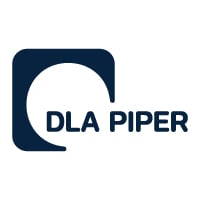

General counsel | Fastems




Pekka Ala-Vähälä
General counsel | Fastems
What are the projects that you are most proud of working on over the past 12 months?
I established the in-house legal function in our company in 2018 and advanced the service level by recruiting legal counsels. The nature of our project business—a unique combination of hardware and software developed over decades and sold as capital equipment to global corporations – is a niche where multidimensional contract management, software licensing, compliance, cybersecurity, and export control are integral parts of the sales process.
The transition of the company from a seller of hardware to a supplier of hardware combined with software licensing has been a highly interesting journey. Protecting the company’s intellectual property rights (IPR) and ensuring the viability of the business under the pressure of very demanding expectations imposed by our customers with high negotiation power has required determined risk management and legal support for all stakeholders in our company.
Our international customers’ compliance expectations have required us to take significant steps forward, particularly regarding the flow-down of complex conditions related to supply chain in public procurement, cybersecurity, and project management. I have been very satisfied with the success of holistic cooperation between legal affairs and other functions of the company in protecting our interests in high-value sales projects, where we have implemented advanced capabilities to follow foreign regulations and serve customers with a lean approach and agile organisation.
How do you approach managing legal aspects during periods of instability or crisis to ensure the organisation’s resilience?
For a relatively small company dealing with big international corporations, it is crucial to find ways to tackle regulatory and contractual burdens sustainably. Resilience is most often tested when sales targets cannot be achieved due to economic slowdowns among key customer segments or crises like COVID-19. In my experience, the most critical element in the management of legal affairs is establishment of a good company culture, which must be maintained throughout the organisation, from top management to the operative level. When all involved persons are committed to working ethically and in a solution-oriented manner, teamwork is fruitful, and agile solutions can be achieved.
A significant asset for our relatively small legal function, which I head, has been the achievement of effective legal protection of the company’s interests through a holistic approach. This involves breaking down silos within the organisation and between different group entities, fostering seamless communication, shared insights, and collective contributions towards common goals. I have been fortunate to obtain excellent results when I have managed to cultivate intrinsic motivation among my colleagues to view the protection of our company’s interests from a legal perspective, while they excel in their own areas of expertise.
Have you had any experiences during your career as a lawyer that stand out as particularly unique or interesting?
The challenges I have encountered during my career have typically related to managing unexpected events with significant value. Early in my career, there was a defence industry project valued at €1.2bn that was near collapse due to the financing problems of a contractual partner. Upon identifying the problem, we established a team to devise activities that could save the project. We negotiated a variety of tailored agreements in a multicultural environment and succeeded in getting the project back on track. Since then, I have not encountered any challenge that could not be settled by making optimal resources available and framing a tailored path for the future.
What do you think sets you apart from other in-house counsel?
I have established legal affairs functions for two companies and subsequently led these functions to become fully integrated parts of their respective organisations, which are organised on a process basis. In both cases, the entire company was transitioning from traditional SMS practices to a process-managed organisation. Therefore, I have experienced all the challenges and difficulties typically associated with such a transformation on the journey to becoming a truly global organisation.
I have always found it rewarding to help my business colleagues generate added value through learning from legal thinking, especially when this learning process enhances their intrinsic motivation to cultivate the desired company culture. In my experience, the legal function works best when it is a valued partner to the business and is integrated into business operations from their early stages.
Based on your experiences in the past year, are there any trends in the legal or business world that you are keeping an eye on that you think other in-house lawyers should be mindful of?
AI is becoming increasingly important in the legal field. There are several key aspects that lawyers should consider, such as the automation of routine tasks, the ethical implications, and the development of competence.